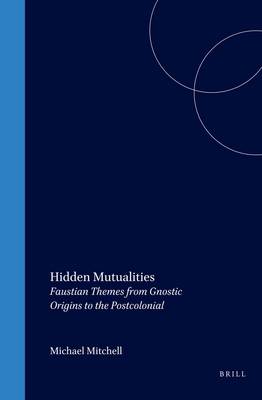
- Afhalen na 1 uur in een winkel met voorraad
- Gratis thuislevering in België vanaf € 30
- Ruim aanbod met 7 miljoen producten
- Afhalen na 1 uur in een winkel met voorraad
- Gratis thuislevering in België vanaf € 30
- Ruim aanbod met 7 miljoen producten
Zoeken
€ 189,45
+ 189 punten
Omschrijving
Hidden mutualities link the work of major postcolonial writers with Christopher Marlowe's drama of the Faustian pact - the manipulation of the material world in exchange for the soul - written as the 'scientific' world-view was emerging which accompanied the imperial expansion of Europe and has determined the economic and social structures of the colonial and postcolonial world.
This fascinating study brings together researches in widely different fields to show how Doctor Faustus reflects a Gnostic / Hermetic tradition marginalized within the dominant European power structures. Rediscovered in the Renaissance, and combined with occult arts such as alchemy and magic, this living tradition informs the work of 'Magus' figures such as Pico della Mirandola, Marcilio Ficino, Trithemius, Johannes Reuchlin, Agrippa of Nettesheim, Paracelsus and John Dee, who are reflected in the Faust tradition and in Prospero in Shakespeare's The Tempest.
The second part investigates the dual legacy of the Magus. A counterpoint between a law-governed objective material world and an occult visionary pursuit of the divine potential of the human imagination is traced through the examples of Johan Kepler, Robert Fludd, Isaac Newton, William Blake, Rudyard Kipling, Aleister Crowley, W.B. Yeats, Wolfgang Pauli and C.G. Jung.
In the third part, textual analysis reveals how attention to these Faustian themes opens new and exciting critical perspectives in appreciating the works of postcolonial writers, in particular Dimetos by Athol Fugard, Disappearance by David Dabydeen, Omeros by Derek Walcott, and the novels of Wilson Harris.
This fascinating study brings together researches in widely different fields to show how Doctor Faustus reflects a Gnostic / Hermetic tradition marginalized within the dominant European power structures. Rediscovered in the Renaissance, and combined with occult arts such as alchemy and magic, this living tradition informs the work of 'Magus' figures such as Pico della Mirandola, Marcilio Ficino, Trithemius, Johannes Reuchlin, Agrippa of Nettesheim, Paracelsus and John Dee, who are reflected in the Faust tradition and in Prospero in Shakespeare's The Tempest.
The second part investigates the dual legacy of the Magus. A counterpoint between a law-governed objective material world and an occult visionary pursuit of the divine potential of the human imagination is traced through the examples of Johan Kepler, Robert Fludd, Isaac Newton, William Blake, Rudyard Kipling, Aleister Crowley, W.B. Yeats, Wolfgang Pauli and C.G. Jung.
In the third part, textual analysis reveals how attention to these Faustian themes opens new and exciting critical perspectives in appreciating the works of postcolonial writers, in particular Dimetos by Athol Fugard, Disappearance by David Dabydeen, Omeros by Derek Walcott, and the novels of Wilson Harris.
Specificaties
Betrokkenen
- Auteur(s):
- Uitgeverij:
Inhoud
- Aantal bladzijden:
- 352
- Taal:
- Engels
- Reeks:
- Reeksnummer:
- nr. 87
Eigenschappen
- Productcode (EAN):
- 9789042021105
- Verschijningsdatum:
- 1/01/2006
- Uitvoering:
- Hardcover
- Formaat:
- Genaaid
- Afmetingen:
- 155 mm x 230 mm
- Gewicht:
- 716 g

Alleen bij Standaard Boekhandel
+ 189 punten op je klantenkaart van Standaard Boekhandel
Beoordelingen
We publiceren alleen reviews die voldoen aan de voorwaarden voor reviews. Bekijk onze voorwaarden voor reviews.








